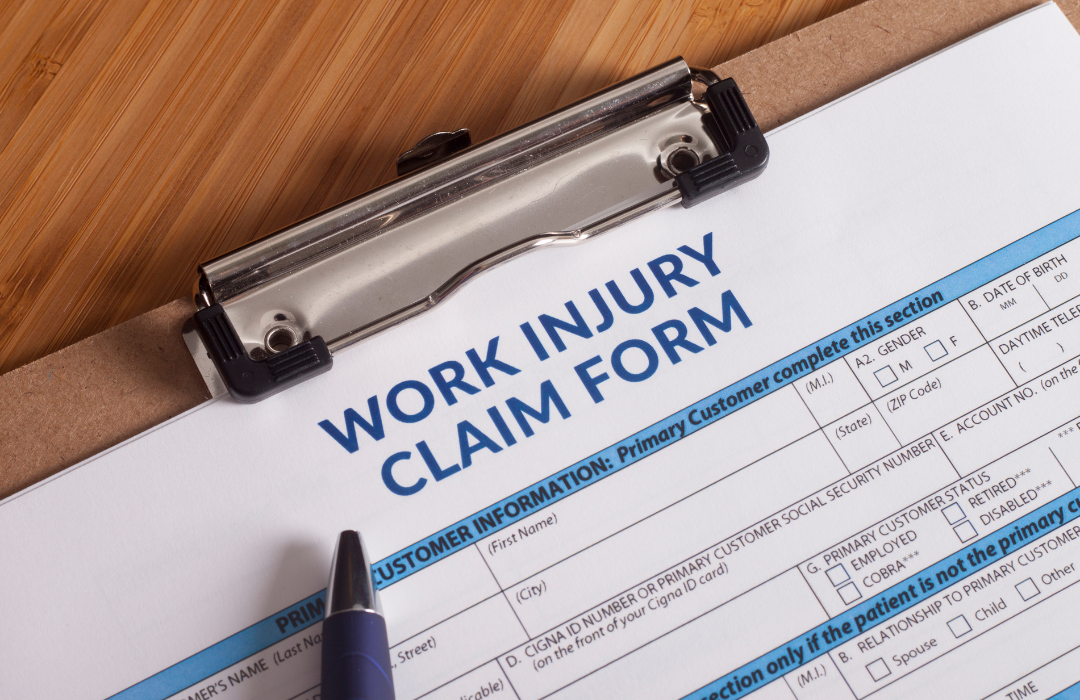October 19, 2023 • 4 minutes to read
Employee Actions and Workplace Injuries
Workplace accidents occur every day no matter how careful workers are or what policies and procedures are in place. These accidents could result from faulty machinery, someone else’s negligence, or weather conditions. Nonetheless, injuries can also result from an employee’s actions. When such accidents happen, it’s crucial to understand that, in most cases, you can still seek compensation for the injury, even if it was your fault. Pennsylvania Workers’ Compensation Law is a no-fault system through which an employee can receive benefits as long as the injury occurs in the course and scope of employment no matter who was at fault for the injury. However, certain circumstances may bar an employee from receiving workers’ compensation benefits, especially in situations where the employee is the one responsible for the accident.
Compensable Injuries
Almost all injuries that occur while the employee is actually working will be compensable even if the employee is at fault. This includes injuries that occur at your place of work, on the road while conducting business, and on company property. A typical example of an injury that would be compensable under Pennsylvania Workers’ Compensation law, would be an employee walking across their employer’s premises, who trips and falls due to a wet spot on the floor injuring themselves. Since the employee is required to be on the premises during work hours and the injury occurred as a result of the employer’s premises, the injury is compensable. Another example would be an employee climbing a ladder, and he misplaces his hand, which causes him to miss a rung on the ladder and fall off of the ladder injuring himself. This is another compensable injury even though the employee caused the accident as it was a simple mistake that occurred on the employer’s premises. These examples make clear that accidents happen and when they do happen, employees should be compensated regardless of whether they were the ones at fault.
When Injuries Aren’t Compensable
However, some circumstances may arise and cause the employee’s accident to become no longer compensable under Pennsylvania Workers’ Compensation law. An accident and consequential injury are not compensable when the employer can prove that the injury occurred because of one of the following circumstances:
- The employee was commuting to or from work: Employees that are injured while they are driving/taking public transportation to work and home from work are not compensable as the employee is not performing work duties and not on the employer’s premises. So, if you are injured during an accident that occurs as you are driving home from work, you will not be eligible to receive workers’ compensation benefits.
- The employee was engaged in horseplay or engaged in an activity known to be hazard: If an injury results from horseplay and activities known to be hazardous it is not compensable. One can imagine a scenario in which employees are having fun at work throwing a football around and the employee running to catch it sustains an injury straining their back or shoulder. To provide another example, imagine an employee operating a forklift after work hours for fun. While using the forklift, the employee falls off of the machine and injures himself. These injuries are not compensable as the employee was engaged in horseplay and the forklift is an activity known to be dangerous.
- The employee was engaged in a fight: If an employee is injured as a result of their own personal animosity or engaging in a fight that is unrelated to work, the injury is not compensable. Thus, if two employees engage in a fight over something as simple as a family matter which results in an injury, that injury would not be compensable as it was unrelated to work.
- The employee intentionally self-inflicted harm to themself: Unfortunately, many people every day harm themselves for a variety of reasons. These injuries caused by self-harm are not compensable whether the employee is doing so to seek compensation, or the self-harm is for other personal reasons.
- The employee was violating a direct order from the employer: Even if the act that causes the injury generally falls inside the scope of duties of the employee, if an employer specifically tells an employee not to engage in the act and the employee does so anyway, the injury will not be compensable. Consider an employee who works as a carpenter. The employee typically must cut wood using a saw prior to installing the wood to build a roof. If the employer tells the employee not to use the saw anymore and to only work on installation, but the employee uses the saw anyway and accidentally cuts his hand, then the injury is not compensable.
- The employee was under the influence of drugs or alcohol: Injuries caused by intoxication are not compensable. For example, if an employee shows up to work drunk and is unable to operate machinery properly because of intoxication, any injury that arises from the misuse of the machinery is not compensable.
- The employee was injured offsite: Injuries that occur off of work property are not compensable as long as the employee is not conducting work activities or on the premises. For example, if you are injured while mowing your lawn at home, the injury is not compensable.
To Sum It Up
These are the most significant situations in which injuries resulting from an employee accident will not be compensable. To sum it up, an employee’s injuries due to their own accidents are generally compensable under Pennsylvania Workers’ Compensation Law. An employee can only be denied benefits under Pennsylvania Workers’ Compensation Law if the accident resulted from the employee’s gross negligence or purposeful misconduct, and the employer can provide evidence that the injury occurred due to such gross negligence or purposeful misconduct. An employee is not barred from compensation when the accident and injury simply arise due to a mistake or general negligence as employees are often forgetful and frequently cause accidents harming themselves. Prior to bringing a workers’ compensation claim for an accident that the employee caused, the employee should consider whether they were attempting to perform their job duties properly and whether the employee was engaged in activity that is inappropriate for a work setting
Determining your eligibility for workers’ compensation benefits in cases where you were responsible for the accident may present complexities. Contact our legal experts for assistance and guidance.
 (215) 999-1443
(215) 999-1443








